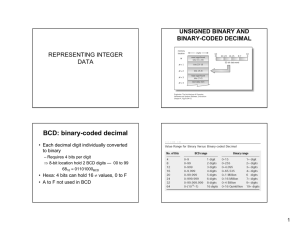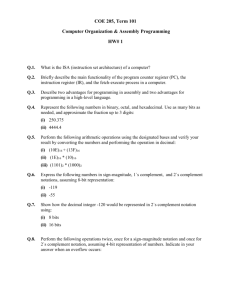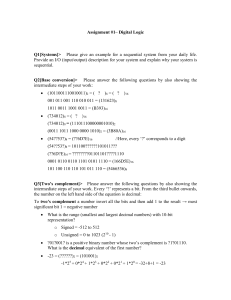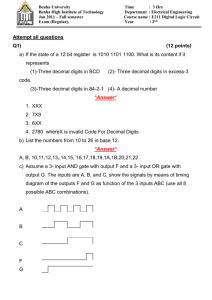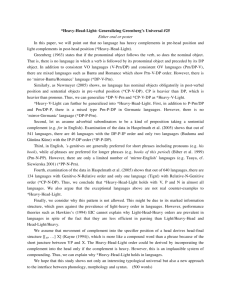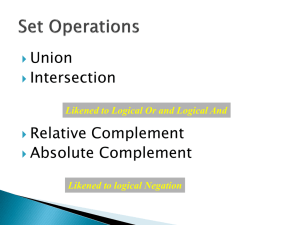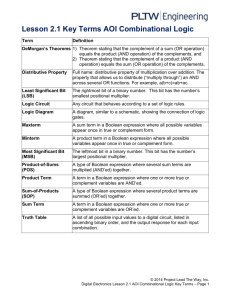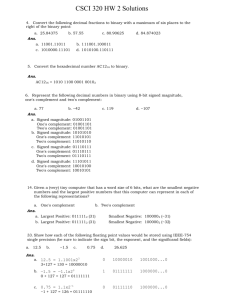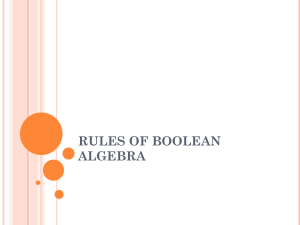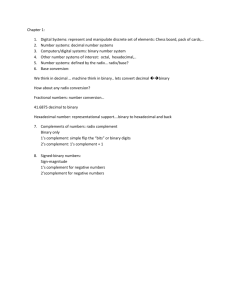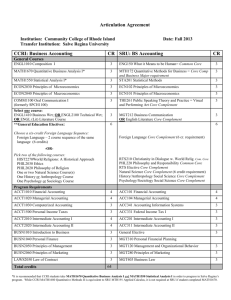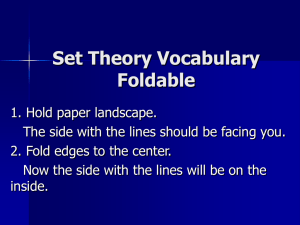Digital Logic Design HW#4: Complements, Subtraction, BCD
advertisement
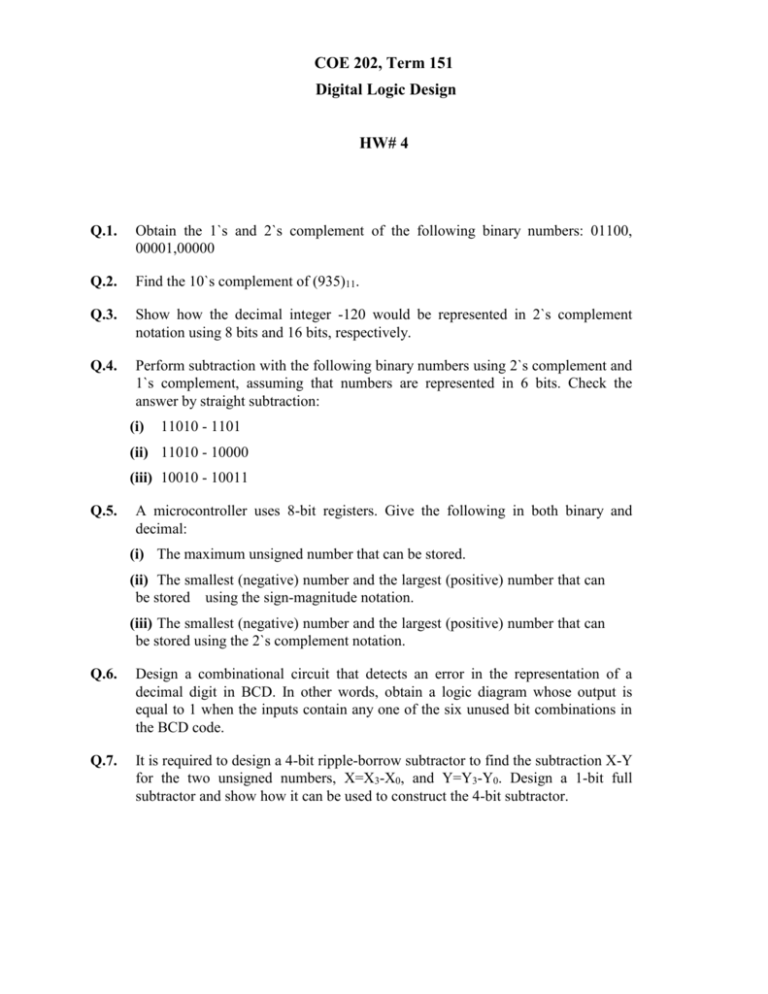
COE 202, Term 151 Digital Logic Design HW# 4 Q.1. Obtain the 1`s and 2`s complement of the following binary numbers: 01100, 00001,00000 Q.2. Find the 10`s complement of (935)11. Q.3. Show how the decimal integer -120 would be represented in 2`s complement notation using 8 bits and 16 bits, respectively. Q.4. Perform subtraction with the following binary numbers using 2`s complement and 1`s complement, assuming that numbers are represented in 6 bits. Check the answer by straight subtraction: (i) 11010 - 1101 (ii) 11010 - 10000 (iii) 10010 - 10011 Q.5. A microcontroller uses 8-bit registers. Give the following in both binary and decimal: (i) The maximum unsigned number that can be stored. (ii) The smallest (negative) number and the largest (positive) number that can be stored using the sign-magnitude notation. (iii) The smallest (negative) number and the largest (positive) number that can be stored using the 2`s complement notation. Q.6. Design a combinational circuit that detects an error in the representation of a decimal digit in BCD. In other words, obtain a logic diagram whose output is equal to 1 when the inputs contain any one of the six unused bit combinations in the BCD code. Q.7. It is required to design a 4-bit ripple-borrow subtractor to find the subtraction X-Y for the two unsigned numbers, X=X3-X0, and Y=Y3-Y0. Design a 1-bit full subtractor and show how it can be used to construct the 4-bit subtractor. Q.8. Design two simplified combinational circuits that generate the 9’s complement of (a) a BCD digit and (b) an excess-3 digit. Then compare the gate and literal count of the two circuits. Assume in both cases that input combinations not corresponding to decimal digits give don’t care outputs. Q.9. Construct a BDC adder-subtractor using a BCD adder and the 9’s complement designed in Q3, as well as other logic or functional blocks as necessary. Use block diagrams for the components, showing only inputs and outputs where possible.
